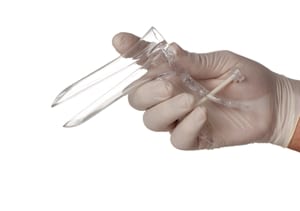New study finds HPV can be detected through urine testing
 A new study conducted by British researchers found that human papillomavirus can accurately be detected through a simple urine test. HPV, which is the most common sexually transmitted infection, can lead to cervical cancer and other major medical issues. This is good news, for in the past HPV screening had to be done using a pap smear, an invasive procedure that makes many women uncomfortable. This is perhaps why many women are anxious or refuse to get tested. While more testing needs to be done to determine how the urine test would be implemented clinically on a global level, this is a promising breakthrough that may encourage women to get tested for HPV. Moreover, urine testing could prove much more cost-effective than pap smears and if more women regularly get tested, it could help prevent cases of cervical cancer.
A new study conducted by British researchers found that human papillomavirus can accurately be detected through a simple urine test. HPV, which is the most common sexually transmitted infection, can lead to cervical cancer and other major medical issues. This is good news, for in the past HPV screening had to be done using a pap smear, an invasive procedure that makes many women uncomfortable. This is perhaps why many women are anxious or refuse to get tested. While more testing needs to be done to determine how the urine test would be implemented clinically on a global level, this is a promising breakthrough that may encourage women to get tested for HPV. Moreover, urine testing could prove much more cost-effective than pap smears and if more women regularly get tested, it could help prevent cases of cervical cancer.
HPV
According to the Centers for Disease Control and Prevention, nearly all sexually active men and women get HPV at some point in their lives.1 This infection is often spread without those with HPV knowing, as it often comes and goes without showing any symptoms. When HPV does not go away on its own, it can potentially cause genital warts and cancer. Identifying HPV through pap smears saves the lives of an estimated 4,500 women each year.2 According to Tech Times, around 33 percent of women under 35 forgo testing.2 Anyone sexually active can become infected with HPV. While most people never experience symptoms, HPV can present genital warts or lead to cancer years after a person is infected. There is no way of knowing which cases of HPV will lead to these conditions, although, those with weak immune systems are more at risk.
Pharmacy technology and thorough research has lead to the invention of an HPV vaccine, which can be given to men and women. HPV vaccines are given in three shots over a duration of six months.1 Approximately 79 million Americans have HPV and 14 million people get infected each year.1 The CDC advises boys and girls should get vaccinated at age 11 or 12. Safe sexual practices can also reduce one’s risk of becoming infected with HPV, however, HPV can infect areas that are not protected by a condom. Talk to a medical administrative assistant and schedule an appointment with your physician to learn more about the HPV vaccine and testing.
Benefits of urine testing
Researchers compiled data from 14 prior studies that included 1,443 women.3 The meta-analysis of these studies was published in The BMJ – formerly known as the British Medical Journal. The scientists found that urine testing correctly identified those that are negative for HPV 94 percent of the time while testing proved 87 percent accurate overall. Scientists concluded that urine testing could prove to be an effective alternative when direct cervical testing using a pap smear is not an option. Researchers further noted that since urine testing is less invasive there is an implication that more women will partake in testing.
As HPV is such a common problem both in the U.S. and worldwide, this study is a promising beginning to encouraging increased awareness of the infection. Many cases of both genital warts and cervical cancer are preventable when HPV is detected and treated early. According to the CDC, 70 percent of cervical cancer cases in the U.S. are a result of HPV. If awareness of the HPV vaccine becomes a more common practice and testing can be more widely encouraged, ideally medical professionals will be able to make HPV less ubiquitous and prevent more cases of cervical cancer.
1 “Genital HPV Infection – Fact Sheet” U.S. Centers for Disease Control and Prevention. March 20, 2014. http://www.cdc.gov/std/hpv/stdfact-hpv.htm
2 “Urine test effectively detects HPV, new study shows” by Sumit Passary. Tech Times. September 17, 2014. http://www.techtimes.com/articles/15781/20140917/urine-test-effectively-detects-hpv-new-study-shows.htm
3 “Accuracy of urinary human papillomavirus testing for presence of cervical HPV: systematic review and meta-analysis” by Neha Pathak, academic foundation year 2 doctor, Julie Dodds, senior clinical trials manager, Javier Zamora, senior lecturer in perinatal statistics, Khalid Khan, professor of women’s health and clinical epidemiology. The BMJ. September 16, 2014. http://www.bmj.com/content/349/bmj.g5264
Learn More About A Career In Pharmacy Technology
This useful guide explains why to become a pharmacy technician, how to do so, and how to choose the right pharmacy technician school for you.


